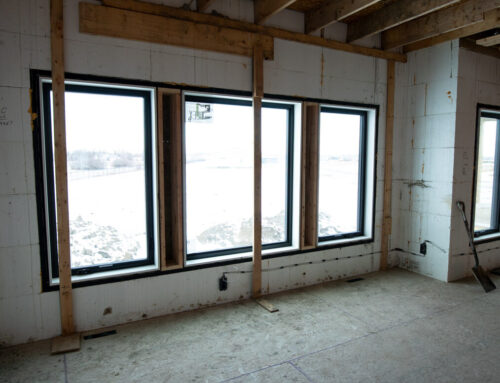Hello, builders, contractors and building officials!
In some municipalities there is some question as to if an ICF installer requires a certification (sometimes referred to as a Wallet Card). Well, here’s some good news: according to the key standards for ICFs like ASTM E2634, CAN-ULC 717.1, and even the national building codes, there’s no requirement for ICF installers to be certified.
That’s right – whether you’re working under the guidelines of the IBC for commercial buildings or the NBC and IRC for residential projects, having a certificate in your pocket isn’t required. Let’s explore why this is the case and what it means for your day-to-day work.
The Lowdown on ICF Standards and Building Codes
First things first, the formal regulations – the prevailing standards that govern ICF construction, and the engineering specs derived under PCA 100, don’t require or even reference certified ICF installers. Even in situations where the IBC calls for special inspections, it’s not exclusive to ICF projects, and these inspections can be carried out by anyone deemed competent, certification or not.
Why the Lack of Certification Requirement Makes Sense
- Keeping Costs in Check
Mandatory certifications can drive up expenses and limit the pool of available skilled labor. For smaller contractors or independent builders, the cost of certification could be a barrier, reducing their ability to take on ICF installation projects.
- Valuing Hands-On Experience
In the construction world, practical experience often carries more weight than formal certification. Many seasoned builders have honed their skills on the job, developing effective techniques for ICF installations.
- Accounting for Regional Variations
Construction practices can vary widely from one region to another. A universal certification might not address these local nuances, making it less practical in certain contexts.
- Encouraging DIY Projects
For DIY enthusiasts and self-builders, compulsory certification could be seen as an undue obstacle. Many individuals prefer tackling their own construction projects, and mandatory certification could dampen this spirit of self-reliance.
- Streamlining the Construction Process
Introducing another layer of mandatory certification could potentially complicate the construction process, leading to delays and increased project costs.
- Trusting the Market to Regulate Itself
In many cases, the construction market is self-regulating. Subpar workmanship or inadequate installation methods are often corrected through market dynamics such as customer feedback and competitive quality standards.

Builders install ProBuck into an Logix ICF wall.
The Evolution from Past to Present
Many, many years ago, particularly in Canada, there was a reference to “factory trained” installers in the initial CCMC approvals granted to some ICF systems. Some companies provided a wallet card or even a jacket to those installers who received some training. However, with the incorporation of ICFs directly into the national building codes, those CCMC approvals are no longer required for ICFs and this requirement has become obsolete.
Comprehensive ICF Training: Widely Available but Not Mandatory
While Logix Brands offers comprehensive ICF installation training – complete with installation guides, videos, and face-to-face and online courses – these don’t amount to a formal certification. We do provide an e-certificate for course completion, but these are acknowledgments of having received training and education rather than any kind of official qualifications.
In Conclusion
When it comes to ICF installation, it’s more about what you know and how well you do the job, rather than any certification. Training is always beneficial and is readily available, but at the end of the day, your practical skills and the quality of your work are what truly matter. So, stay informed, keep honing your skills, and let your craftsmanship do the talking.












